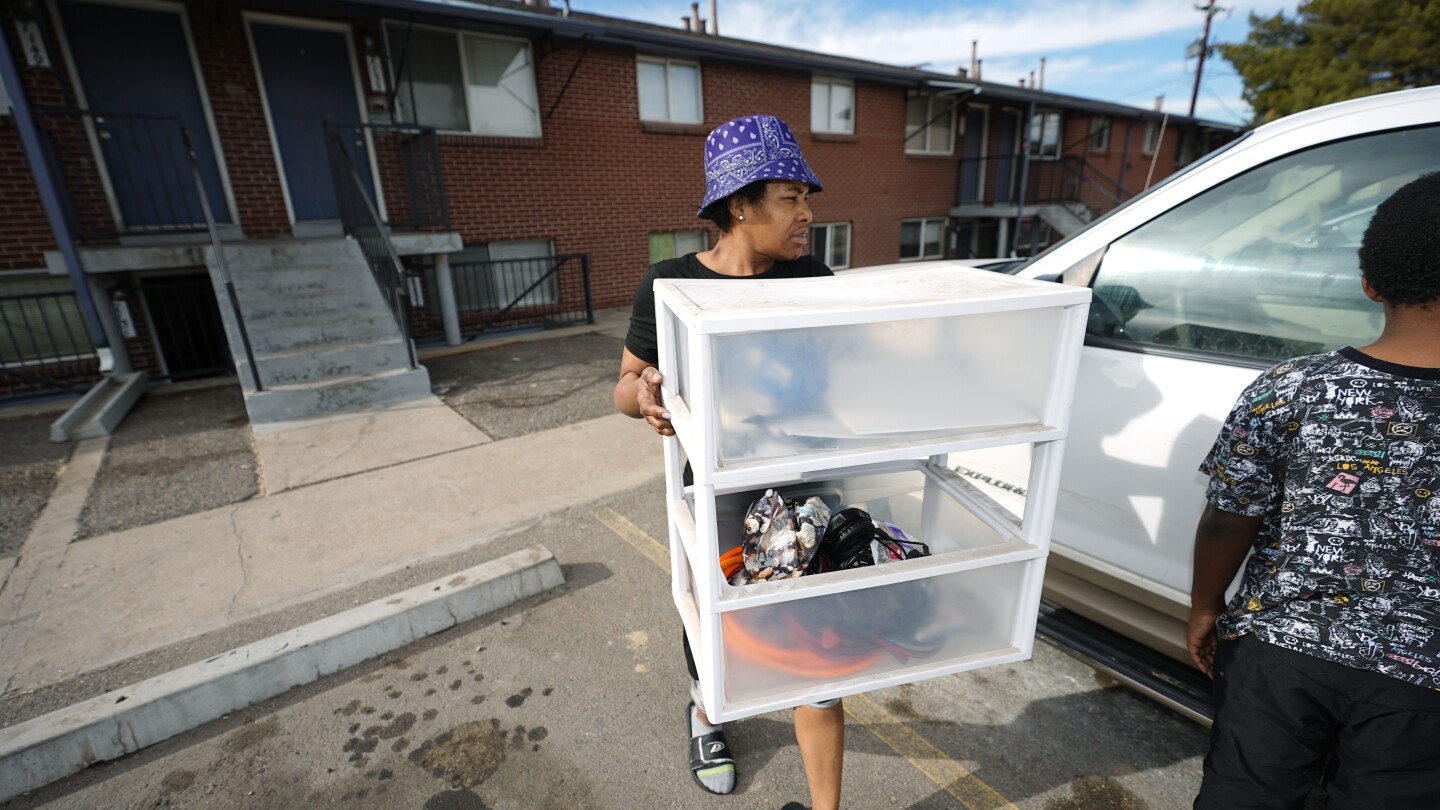- cross-posted to:
- news@lemmy.world
- cross-posted to:
- news@lemmy.world
Single mom Caitlyn Colbert watched as rent for her two-bedroom apartment doubled, then tripled and then quadrupled over a decade in Denver — from $750 to $3,374 last year.
Every month, like millions of Americans, Colbert juggled her costs. Pay rent or swim team fees for one of her three kids. Rent or school supplies. Rent or groceries. Colbert, a social worker who helps people stay financially afloat, would often arrive home to notices giving her 30 days to pay rent and a late fee or face eviction.
“Every month you just gotta budget and then you still fall short,” she said, adding what became a monthly refrain: “Well, this month at least we have $13 left.”
Millions of Americans, especially people of color, are facing those same, painful decisions as a record number struggle with unaffordable rent increases, a crisis fueled by rising prices from inflation, a shortage of affordable housing and the end of pandemic relief.
The latest data from the Harvard Joint Center for Housing Studies, released in January, found that a record high 22.4 million renter households — or half of renters nationwide — were spending more than 30% of their income on rent in 2022. The number of affordable units — with rents under $600 — also dropped to 7.2 million that year, 2.1 million fewer than a decade earlier.
…
In Congress, lawmakers are working on a bill that would expand a federal program that awards tax credits to housing developers who agree to set aside units for low-income tenants. Supporters say that could lead to the construction of 200,000 more affordable homes. Some lawmakers are also calling for more rental assistance, including a significant increase in funding for housing vouchers.



They haven’t done anything for decades…
But we should believe them now in the run up to an election that after the next election they’ll really do something.
They’ve been saying the same thing as far back as I can remember, but as soon as their elected they go back to ignoring it.
We need to get the Republicans and neoliberals out of office if we want actual progress. Neither of them will actually fix this shit, because the people donating them money don’t want it fixed.
The most we’ll get is billions to real estate moguls to subsidize them building high end housing that doesn’t address the issue.
Sometimes they only campaign on “the rent is too damn high!”
real estate/developer lobbies in most places fund all candidates in the US. Its hard to overstate how manipulative they are.
NYC finally did something in 2019 about the predatory renting practices, such as having the tenant pay the exorbitant broker fees (typically 2x or more of monthly rent, which is around $2600-3000/month), this was now the landlord’s responsibility… Then in 2022 they repealed it.
Get real estate developers and land lords out of the legislatures. Make it such a dirty word that being found out means your campaign is over.
Let’s not stop there. Get big corporations out of the legislature. End Citizen’s United.
If the poor folk could organize, pool money together, and spend time lobbying, we might have a chance. We suck at organizing, we’re too short on cash just trying to stay afloat, and we’ve no time to be spending lobbying, either.